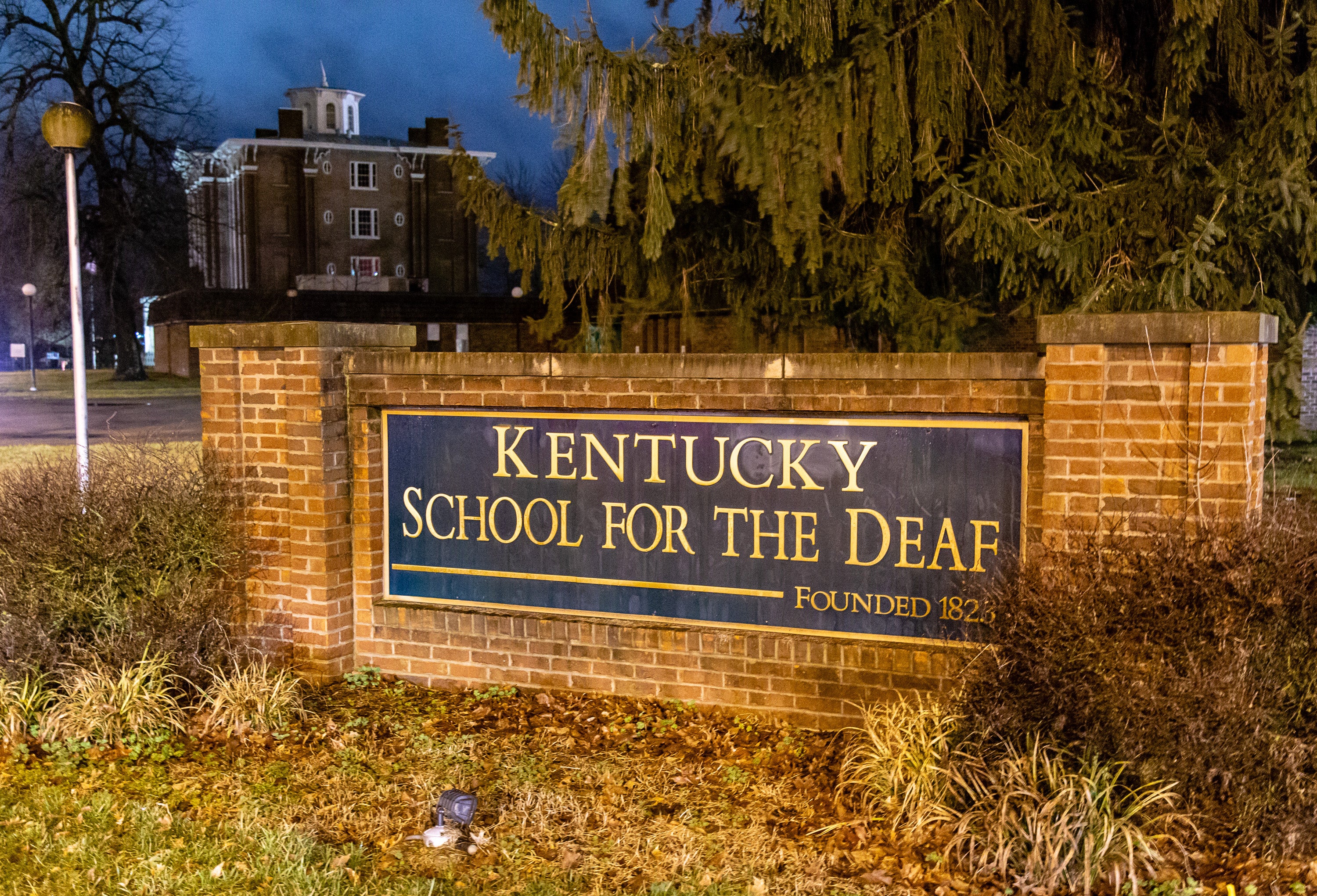Lawsuit alleges ‘abuse of authority’ at Kentucky School for the Deaf
Published 5:53 pm Friday, October 25, 2019
A former teacher at the Kentucky School for the Deaf has filed a whistleblower lawsuit, alleging she was fired in retaliation for reporting “violations of law” and “abuse of authority” by KSD Principal Toyah Robey.
Deanna Glasser filed her complaint in Franklin Circuit Court in August, seeking restoration of her job and damages against the Kentucky Department of Education, the Kentucky Board of Education, Kentucky Education Commissioner Wayne D. Lewis and Robey.
Lewis and KDE filed an answer Aug. 28 flatly denying almost all of Glasser’s allegations.
The suit alleges Glasser’s contract as a language arts teacher at KSD was not renewed in the summer of 2019 because of numerous reports she made concerning student bullying, student mental health services, school safety, a lack of speech therapy and Robey’s behavior.
Beginning in the fall of 2017, Glasser claims teachers like her who are proficient in American Sign Language began needing to interpret for and listen to deaf students with mental health and other problems because so many new staff had been hired who could not communicate using ASL.
New staff hired in 2017 included two psychologists, a guidance counselor, a social worker and contract therapists, all of whom “had no signing skills, which (led) to delay in students communications about student safety concerns and students’ social-emotional needs,” the lawsuit alleges.
As a result, “teachers like (Glasser were) … being called in to hear and shepherd students with immediate social-emotional needs when mental health staff were not available,” the suit claims.
Glasser claims she was called into Robey’s office and/or reprimanded multiple times for listening to students with problems and relaying those problems as she could to other staff.
Fear of retaliation
The lawsuit claims in March 2018, the Kentucky School for the Deaf Education Association (KSDEA) sent a letter to Robey “about a number of staff concerns, including her failure to follow evaluation guidelines, and not using an interpreter for teacher evaluations and for staff and student communications, as required by disability rights law.”
That same month, Glasser told Linda Funke, coordinator of state schools for KDE, that she feared retaliation from Robey because she had reported concerns, “in part because of (Robey’s) recent unfounded and insulting criticism of (Glasser’s) teaching performance on a walk-through that was conducted by the assistant principal, and not Robey.”
Later in 2018, Glasser was elected president of KSDEA.
Glasser also claims on Aug. 8, 2018, Robey reassigned the school’s speech therapist to a kindergarten classroom. After the reassignment, Glasser spoke in a public area to the former therapist about joining the Kentucky Education Association.
The day after the speech therapist was reassigned, Glasser claims Robey told her to come into her office, “speaking quietly but aggressively through clenched teeth just a few inches from (Glasser’s) face.”
In the meeting, which Glasser alleges was also attended by two counselors, Robey claimed Glasser was inappropriately “counseling” students, according to the suit.
Glasser denied the allegation and the counselors “confirmed that (Glasser) had followed appropriate procedures,” the suit claims.
Robey then wanted to speak privately with Glasser without the counselors present, but Glasser said she wanted a counselor to stay. Robey “demonstrated her anger when she stood up and hit her fist on her desk, before agreeing to allow one of the counselors to stay,” the suit claims. “(Glasser) told (Robey) that the lack of adults in authority and on the mental health team who could communicate via sign language created a barrier for the children and delay in providing support needed in a timely manner.”
After the allegedly contentious meeting, Glasser claims she stepped down as KSDEA president “out of concern of possible job actions” because of how Robey was behaving toward her.
Glasser’s lawsuit also claims after the speech therapist was reassigned, there were no speech therapy services provided at the school, including for her own foster son, for at least three months. Glasser claims she knows Robey told other KSD staff she wondered “how long she could ‘get away with’ not having speech therapy services.”
Non-renewal
Glasser alleges she shared her concerns with Funke, the coordinator of state schools, and Greta Hylton, KDE’s associate commissioner of special education and early learning, on multiple occasions. She also claims she reported them to a school safety audit team that interviewed KSD staffers.
Glasser’s suit claims Commissioner Lewis held a meeting at KSD on Feb. 26 of this year to address concerns sent to him by letters and emails about the school. Glasser told Lewis staff may not feel comfortable speaking up for fear of repercussions and asked if anonymous comments could be made instead. Lewis said he needed “names and evidence” and declined, according to the lawsuit.
In March 2019, Glasser claims she again spoke with Hylton about her fear of retaliation from Robey, “due, in part, to the bullying-type conduct of (Robey).”
On May 9, Lewis sent Glasser a letter informing her that her contract was not being renewed. Glasser asked for the specific reasons for the non-renewal, and she received a letter stating those reasons on June 26, according to the suit. But the stated reasons “contain misrepresentations or are completely untrue and they are not documented in (Glasser’s) personnel file,” the suit claims.
“The true reason for (Glasser’s non-renewal) … was (Robey’s) desire to retaliate against (Glasser) for her actions and her speech to advocate for the rights of deaf and hard of hearing students,” the suit reads. It continues that Commissioner Lewis “demonstrated his approval of Robey’s retaliatory intent by taking final action to non-renew (Glasser), in order to punish her and to silence her speech and reporting of illegal practices and threats to the safety and welfare of KSD students and staff.”
Seeking damages, reinstatement
The suit claims the alleged retaliation violated the Kentucky Civil Rights Act and the Kentucky Whistleblower Act. Glasser also claims her rights under the Kentucky Constitution were violated.
The suit asks a judge to:
- “prohibit (Robey’s) abuse of authority by threatening and intimidating actions toward staff;”
- order KSD to reinstate Glasser as a high-school language arts teacher; and
- award Glasser lost wages, damages for relocating for another job, damages for “her embarrassment and humiliation” and punitive damages “due to the malicious or recklessly indifferent acts of” Robey.
KDE answer denies claims
KDE’s response denies most of what Glasser claims. It acknowledges KSD received the letter from the Kentucky School for the Deaf Education Association about concerns over Robey’s actions, but states the defendants “are without sufficient information or knowledge to form a belief as to the truth of the remaining allegations contained in said paragraph” of the lawsuit.
It also acknowledges a school safety audit was performed, but states that students “reported feeling unsafe in one particular area of campus; thus, in light of this clarification, the allegation relating to student safety generally is denied.”
The answer acknowledges the meeting with Commissioner Lewis over staff concerns occurred, and that a Kentucky Education Association representative was not allowed to be in the room. Further, the answer states that Glasser spoke at the meeting and “Dr. Lewis expressed concerns about anonymous complaints.” But it denies the rest of Glasser’s description of the meeting.
The answer lists 15 different, broadly stated defenses KDE may use and asks for the judge to dismiss the lawsuit with prejudice and make Glasser pay KDE’s attorney fees.
The defenses listed include that Glasser “fails to state a claim … for which relief may be granted;” that Glasser “lacks capacity or standing to file this suit;” that Glasser “failed to name a necessary and indispensable party to this action;” that the court lacks “jurisdiction over all or part of this action;” that the defendants are entitled to immunity; that all the defendants acted at all times in “good faith;” and that Glasser “failed to mitigate damages alleged.”
This story has been updated to clarify terms used surrounding American Sign Language, and that the lawsuit states Glasser met in a “public area” with KSD’s former speech therapist, not “in public” as the story originally stated.







